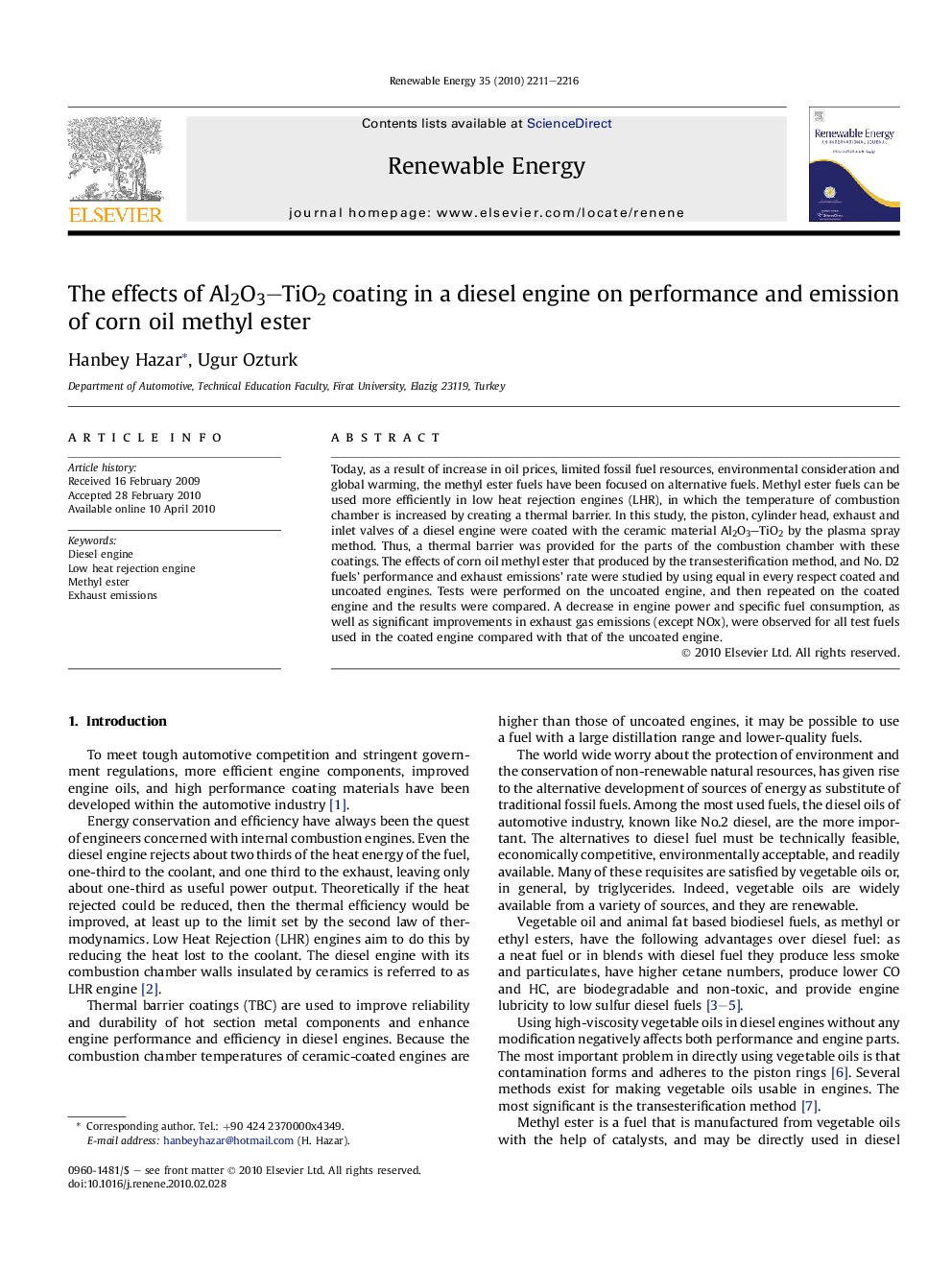| Article ID | Journal | Published Year | Pages | File Type |
|---|---|---|---|---|
| 302276 | Renewable Energy | 2010 | 6 Pages |
Today, as a result of increase in oil prices, limited fossil fuel resources, environmental consideration and global warming, the methyl ester fuels have been focused on alternative fuels. Methyl ester fuels can be used more efficiently in low heat rejection engines (LHR), in which the temperature of combustion chamber is increased by creating a thermal barrier. In this study, the piston, cylinder head, exhaust and inlet valves of a diesel engine were coated with the ceramic material Al2O3–TiO2 by the plasma spray method. Thus, a thermal barrier was provided for the parts of the combustion chamber with these coatings. The effects of corn oil methyl ester that produced by the transesterification method, and No. D2 fuels’ performance and exhaust emissions’ rate were studied by using equal in every respect coated and uncoated engines. Tests were performed on the uncoated engine, and then repeated on the coated engine and the results were compared. A decrease in engine power and specific fuel consumption, as well as significant improvements in exhaust gas emissions (except NOx), were observed for all test fuels used in the coated engine compared with that of the uncoated engine.
